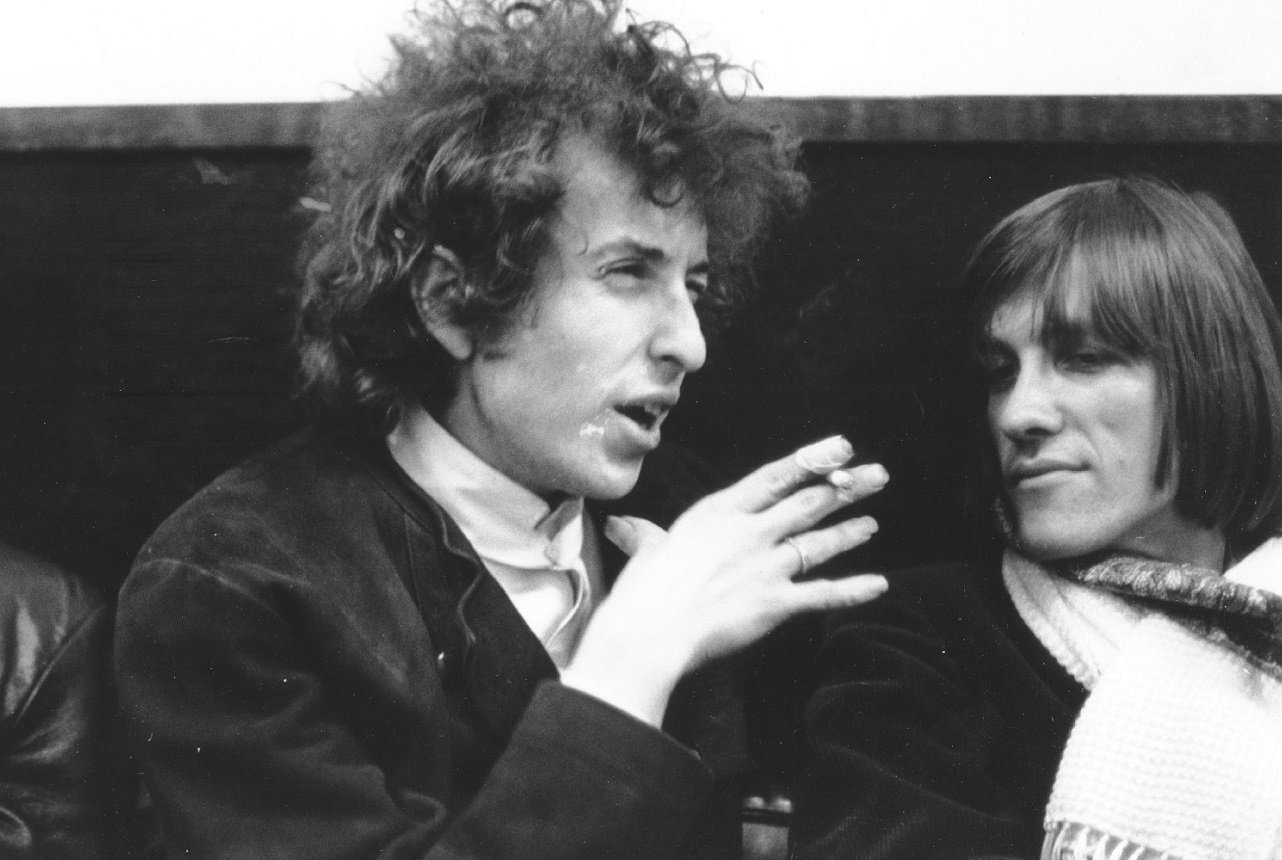Classic Lines: Bob Dylan’s ‘To Live Outside the Law You Must Be Honest’ Cuts Through ‘Blonde on Blonde’
If you’re ranking the greatest Bob Dylan records, Blonde on Blonde (1966) has to be in the conversation. Scanning the double LP’s four sides, you find epics (“Sad-Eyed Lady of the Lowlands”), innovative love songs (“Just Like a Woman”), and a true Dylan masterpiece (“Visions of Johanna”). While there’s no “Like a Rolling Stone” here, there’s hardly a dud.
Listening 55 years later, you might take issue with the sound (some grating harmonica, to be specific) on a few tracks, but you won’t quibble with the lyrics. Blonde on Blonde featured Dylan in peak form. On “Absolutely Sweet Marie,” a minor track, he drops a line that managed to cut through all the poetry and abstract images on his landmark release.
Bob Dylan’s ‘To live outside the law you must be honest’ counts among his finest lines

When it comes to memorable lyrics (including that Bob Marley “bombing a church” line), Dylan’s shining moment from “Absolutely Sweet Marie” can’t be overlooked. Even if the song (especially its plodding beat) doesn’t grab you, you walk away thinking about that line for a long time.
Dylan’s ostensibly doing a serenade here (the unrequited sort). He can’t jump Marie’s “railroad gate,” he’s sitting around waiting, “beating on his trumpet,” and so on. But at the first bridge, he starts cooking. “Anybody can be like me, obviously,” he sings. “But then again, not too many can be like you, fortunately.”
After the bit about six white horses getting delivered to the penitentiary, he uncorks “To live outside the law, you must be honest. I know you always say that you agree.” Call it an eternal truth, if you like. But you can’t refute it. It’s the greatest sort of wisdom, told in character in a song midway through side 3.
Dylan’s outlaw code had its antecedents
Obviously, Dylan knew his Bible and Shakespeare, loved the pictures, and appreciated the latest slang as much as anyone (see: that nurse, “some local loser,” from “Desolation Row”). And listeners found him turning to all of the above on Blonde on Blonde.
As for his classic “Absolutely Sweet Marie” line, the novelist Jonathan Franzen had a theory about its antecedent. In his 2007 Harper’s article “The Ecstasy of Influence,” Franzen pointed to the 1958 film The Lineup, written by Stirling Silliphant (who later penned In the Heat of the Night).
In The Lineup, Silliphant had a character say, “When you live outside the law, you have to eliminate dishonesty.” Did Dylan (as Franzen suggests) “clean it up a little” and repurpose it for “Absolutely Sweet Marie”? It doesn’t matter, really. But it’s interesting to hear Franzen’s idea about the source, nonetheless.
Blonde on Blonde has Dylan singing about “cracked bells and washed-out horns,” a woman’s “mercury mouth in the missionary times,” and someone playing “blindman’s bluff with a keychain,” but his eternal truth on “Absolutely Sweet Marie” outshines all of them. Soulful Dylan is hard to beat.


